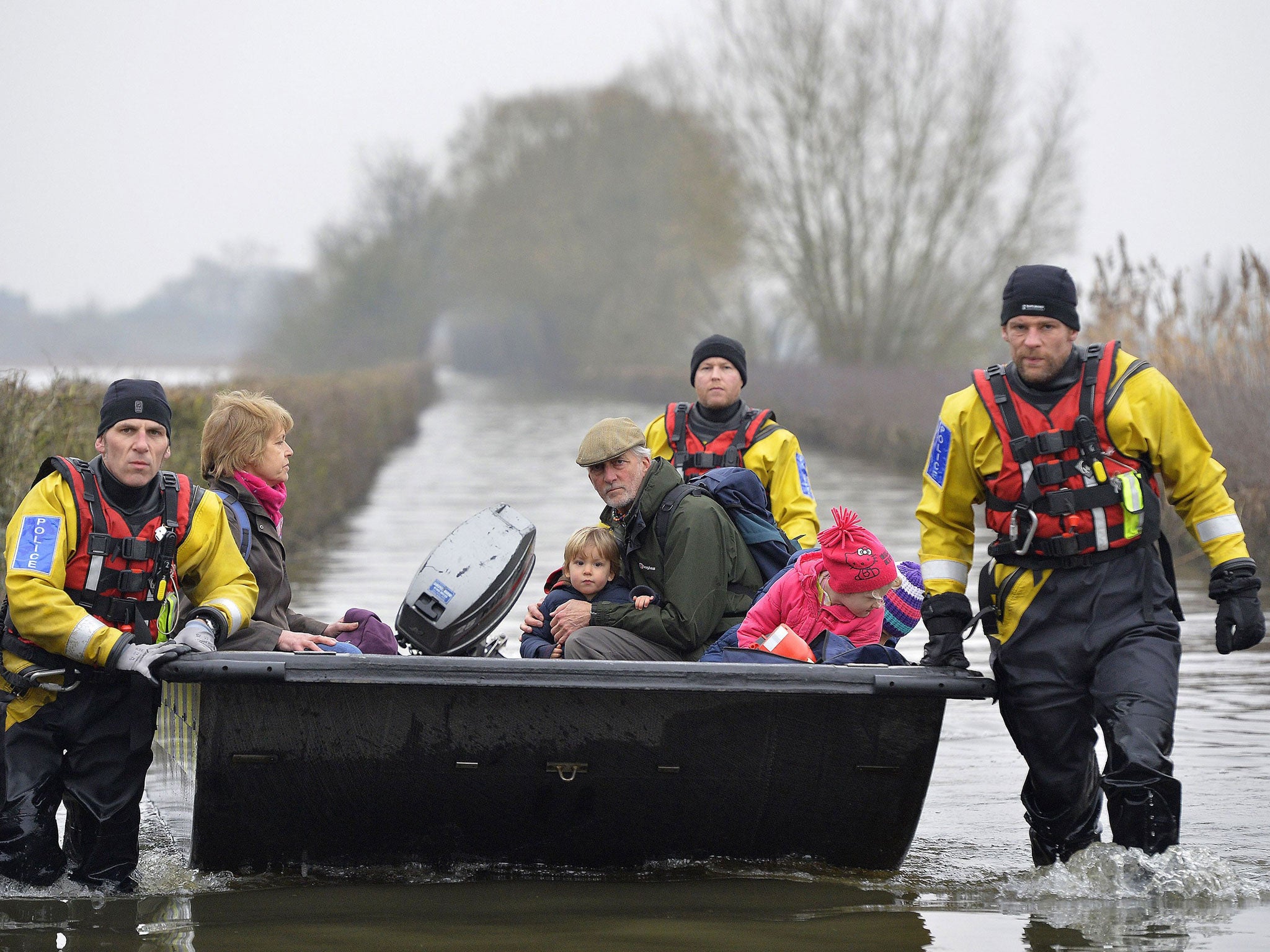Why we shouldn't transfer money from foreign aid to flood relief in this country
The Government has so far failed to adequately defend spending abroad

As pensioners are ferried out of their homes by dinghy, and the fields of Somerset are replaced by lakes, here is a question to which nobody has so far given a satisfactory answer: why shouldn’t we divert money from the aid budget to help victims of flooding?
Ukip leader Nigel Farage stamped his wellington boots and called for a transfer of funds last week, a solo later supported by the full orchestra of the Daily Mail. Eric Pickles, the minister in charge of flood response, had a go at a reply on Sky News but only brought forth more unwanted dribble. “If it is truly global warming,” he said (softly softly, eh sir?) “and our aid is sustainable aid, then aid that we are offering in other parts of the world will have an effect in terms of the things that happen in this country”.
Let’s dredge this statement a moment. First, the sole Government defence of the aid budget issued so far rests on a big “if”. Second, it backs up the Ukip leader’s underlying assertion that money spent on aid ought to show clear gains “in this country”, at the same time as pushing any returns far enough off into the future to mollify precisely zero of the Somerset residents currently enduring misery.
This is a critical moment for the aid budget. It hardly matters that, as the Department for International Development (DFID) has pointed out, European regulations would prevent any aid money being spent in this country. What is at stake here is whether aid spending can stand up for itself when there is a very visible, very emotional case to siphon off some of the £11bn budget (which will reach 0.7% of GDP this year) for stricken Brits.
Two strands of development thought complicate a defence. First, the gradual acceptance that the old binaries of “developed” and “developing” world are becoming less relevant. While the extremely poor remain extremely poor, their number is falling - with comparatively little assistance from aid – and many development economists now favour helping people in the ‘Third World’ with measures that have a distinctly ‘First World’ flavour: tackling road safety, smoking, and tax avoidance. The flipside here is that if development experts can no longer simply separate “them” from “us”, how can they respond when Somerset is being compared (however absurdly) to Bangladesh in the right wing press?
The second problem is this: there is a divide between spending for development and disaster relief. Farage would keep the latter form of spending – as well as clean water and healthcare projects - but cut all the rest. Yet when economic development programmes work well – such as DFID’s help in creating the successful Burundi tax authority, or raising farmer incomes in Northern Nigeria – they can contribute to life-changing prosperity.
So why not transfer to Somerset? Because suffering in Somerset is mild compared to that in Bangladesh. Because there’s already plenty of money in and political attention on these floods. And because although Britain’s attempts to reduce poverty aren’t perfect, we owe the world more than a turned back.
Join our commenting forum
Join thought-provoking conversations, follow other Independent readers and see their replies
Comments